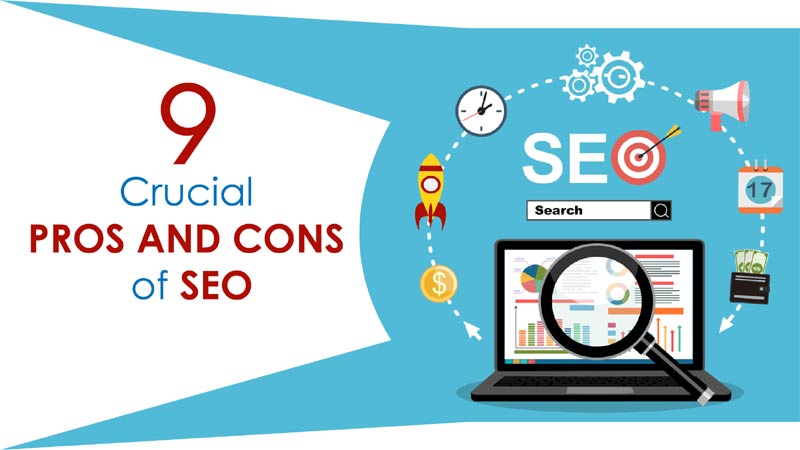Introduction to SEO Strategy
As the digital landscape evolves, businesses must adapt their marketing strategies to stay ahead of the competition. One of the most effective ways to improve your online presence and drive organic traffic to your website is through a well-planned SEO strategy. This article will explore the importance of SEO strategy in today’s digital landscape and provide three compelling reasons to kickstart your SEO strategy today.
Table of Contents
- Introduction to SEO Strategy
- The Importance of SEO Strategy in Today’s Digital Landscape
- Benefits of Implementing an SEO-Strategy
- Case Studies Showcasing Successful SEO-Strategies
- Critical Components of an Effective SEO Strategy
- Conducting Keyword Research for Your SEO Strategy
- On-Page Optimization Techniques for SEO Success
- Measuring and Analyzing the Success of Your SEO Strategy
- Conclusion: Why Now Is the Time to Kickstart Your SEO Strategy
The Importance of SEO Strategy in Today’s Digital Landscape
A solid SEO strategy is essential in a world where consumers rely heavily on search engines to find products and services. A well-optimized website can help your business rank higher in search engine results pages (SERPs), making it more visible to potential customers. By appearing on the first page of search results, you can significantly increase your website traffic and improve your chances of converting visitors into paying customers.
Furthermore, implementing an SEO strategy can also enhance your overall user experience. Search engines like Google prioritize websites that offer valuable content, fast loading times, and a mobile-friendly design. By optimizing your website for search engines, you are indirectly improving the user experience for your visitors. This, in turn, can lead to higher engagement, longer time spent on your site, and increased brand loyalty.
Benefits of Implementing an SEO-Strategy
Implementing an SEO strategy offers numerous benefits for your business. Firstly, it helps you build brand credibility and trust. When your website appears at the top of search results, consumers perceive your business as more reputable and trustworthy. This can significantly influence their purchasing decisions and increase sales and revenue.
Secondly, a well-executed SEO strategy can provide long-term and sustainable results. Unlike paid advertising, where your visibility disappears as soon as you stop paying, organic search traffic continues to flow even after you have clogged actively optimizing your website. By investing in SEO, you are building a solid foundation for your online presence that will continue generating traffic and leads for years.
Lastly, a successful SEO strategy can give you a competitive edge in your industry. You are effectively stealing their potential customers by outranking your competitors in search engine results. This can increase market share and establish your business as a leader in your niche.
Read More : 5 Web Development Tools for SEO
Case Studies Showcasing Successful SEO-Strategies
To further illustrate the power of SEO strategies, let’s look at two case studies that showcase businesses that have achieved remarkable success through their SEO efforts.

Case Study 1: Company A
Company A, a small e-commerce business specializing in handmade jewelry, needed help to gain visibility in a highly competitive market. After implementing a comprehensive SEO strategy, which involved optimizing their website, creating high-quality content, and building authoritative backlinks, Company A saw a significant increase in organic traffic. Within six months, their website traffic tripled, leading to a 40% increase in sales and a substantial boost in brand recognition.
Case Study 2: Company B
Company B, a local bakery, faced challenges attracting customers beyond their immediate area. By implementing a localized SEO strategy, optimizing their Google My Business listing, targeting location-specific keywords, and obtaining positive online reviews, Company B experienced a surge in foot traffic. Their website visits increased by 70%, resulting in a 25% growth in revenue and a steady stream of new customers.
These case studies demonstrate the transformative power of a well-executed SEO strategy. By investing time and resources into SEO, businesses can achieve remarkable results and unlock new growth opportunities.
Critical Components of an Effective SEO Strategy
To create an effective SEO strategy, it is crucial to understand the key components that contribute to its success. Here are the essential elements to consider when developing your SEO-strategy.
Keyword Research
Keyword research lays the foundation for your SEO strategy. You can optimize your website content to align with their search intent by identifying the keywords your target audience is searching for. Tools like Google Keyword Planner, SEMrush, and Moz Keyword Explorer can help you uncover valuable keywords with high search volume and low competition.
On-Page Optimization
On-page optimization refers to optimizing your website pages’ content and HTML source code. This includes optimizing your title tags, meta descriptions, heading tags, and internal linking structure. Following on-page optimization, best practices can improve your website’s visibility in search results and enhance the user experience.
Off-Page Optimization
Off-page optimization involves activities that take place outside of your website but still impact your search engine rankings. This includes building high-quality backlinks from reputable websites, creating engaging and shareable content, and engaging with your audience on social media platforms. Off-page optimization helps search engines understand the relevance and authority of your website, ultimately improving your rankings.
Read More: Boost Your Online Presence: Effective SEO Services for Small Business Owners
Conducting Keyword Research for Your SEO Strategy
Keyword research is a crucial step in developing an effective SEO strategy. By understanding the keywords your target audience uses to find products or services similar to yours, you can optimize your website content to align with their search intent. Here are some steps to conduct keyword research for your SEO-strategy.
- Start with a broad list of potential keywords related to your business or industry.
- Use keyword research tools like Google Keyword Planner, SEMrush, or Moz Keyword Explorer to identify keywords with high search volume and low competition.
- Analyze the search intent behind each keyword. Are users looking for information, products, or services?
- Prioritize keywords based on relevance, search volume, and competition.
- Create high-quality content that incorporates your target keywords naturally.
- Monitor the performance of your chosen keywords and make adjustments as needed.
By conducting thorough keyword research, you can optimize your website to attract the right audience and improve your chances of ranking higher in search engine results.
On-Page Optimization Techniques for SEO Success
On-page optimization is crucial in improving your website’s visibility in search engine results. By implementing the following on-page optimization techniques, you can enhance your SEO success:
- Optimize your title tags: Include your target keyword and create a compelling title that accurately describes the page’s content.
- Write compelling meta descriptions: Craft concise and informative meta descriptions that entice users to click on your website.
- Use heading tags strategically: Organize your content using heading tags (H1, H2, H3, etc.) to help search engines understand the structure and hierarchy of your page.
- Optimize your URLs: Use descriptive and keyword-rich URLs that accurately reflect the content of your page.
- Improve page load speed: Optimize your images, minify CSS and JavaScript files, and leverage browser caching to improve your website’s load speed.
- Enhance mobile-friendliness: Ensure your website is fully optimized for mobile devices, as mobile-friendliness is a crucial ranking factor for search engines.
By implementing these on-page optimization techniques, you can improve your website’s visibility, user experience, and, ultimately, your search engine rankings.
Off-Page Optimization Strategies to Boost Your SEO Rankings
Off-page optimization refers to activities outside your website that still impact your search engine rankings. By implementing the following off-page optimization strategies, you can boost your SEO rankings and improve your online visibility:
1. Build high-quality backlinks: Focus on acquiring backlinks from authoritative and relevant websites. Guest blogging, influencer outreach, and content promotion effectively build quality backlinks.
2. Create engaging and shareable content: Develop valuable and unique content that resonates with your target audience. High-quality content naturally attracts backlinks and social shares, signaling authority to search engines.
3. Engage with your audience on social media: Actively participate in social media platforms relevant to your business. Share your content, engage with your audience, and build a community around your brand.
4. Encourage online reviews: Positive reviews on platforms like Google My Business and Yelp can boost your local search engine rankings. Encourage satisfied customers to leave reviews and respond to feedback promptly.
By implementing these off-page optimization strategies, you can strengthen your website’s authority, improve your online reputation, and boost your SEO rankings.
Measuring and Analyzing the Success of Your SEO Strategy
Measuring and analyzing the success of your SEO-strategy is essential to ensure you are on the right track and to identify areas for improvement. Here are some key metrics and tools to help you measure and analyze your SEO success:
1. Organic traffic: Monitor the number of visitors visiting your website through organic search. Tools like Google Analytics can provide valuable insights into your organic traffic performance.
2. Keyword rankings: Track the orders of your target keywords in search engine results. Tools like SEMrush and Moz Pro offer keyword-tracking features.
3. Conversion rate: Measure the percentage of visitors who take the desired action on your website, such as purchasing or filling out a contact form.
4. Bounce rate: Analyze the percentage of visitors who leave leaving site without interacting with it. The bounce rate could indicate issues with your website’s user experience.
5. Backlink profile: Monitor the quality and quantity of backlinks pointing to your website. Tools like Ahrefs and Majestic provide detailed backlink analysis.
By regularly monitoring these metrics and using SEO analytics tools, you can gain valuable insights into your SEO strategy’s performance and make data-driven optimization decisions.
Conclusion: Why Now Is the Time to Kickstart Your SEO Strategy
In today’s digital landscape, a well-executed SEO strategy is crucial for businesses looking to thrive online. By optimizing your website for search engines, you can attract more organic traffic, build brand credibility, and gain a competitive edge in your industry. The benefits of implementing an SEO strategy are undeniable, as showcased by the success stories of businesses that have achieved remarkable results through their SEO efforts.
So, seize the opportunity and kickstart your SEO strategy today. Conduct thorough keyword research, optimize your website’s on-page and off-page elements, and regularly measure and analyze your SEO success. By taking action now, you can position your business for long-term growth and success in the ever-evolving digital landscape.
Latest Post:
-
Smart Home Appliances in the UAE: Revolutionizing Modern Living
The UAE has long been recognized as a hub for innovation and technological advancement, and the adoption of smart home appliances is no exception. As the nation embraces the concept of smart homes, residents are experiencing a transformation in their daily lives, characterized by increased convenience, efficiency, and sustainability. This article explores how smart home…
-
(Artificial Intelligence) AI and ML (Machine Learning) : Transforming the Future
Artificial Intelligence (AI) and Machine Learning (ML) are two of the most transformative technologies of our time. They are reshaping industries, driving innovation, and opening up new possibilities in ways previously unimaginable. This article explores the fundamentals of AI and ML, their applications, and their profound impact on various sectors. Understanding Artificial Intelligence (AI) What…
-
Digital Marketing Services: Transforming Your Business in the Digital Age
In today’s digital-first world, businesses must leverage digital marketing services to remain competitive, attract customers, and drive growth. Digital marketing encompasses a broad range of tactics and strategies aimed at promoting products or services through digital channels. This article delves into the various types of digital marketing services available, their benefits, and how businesses can…





